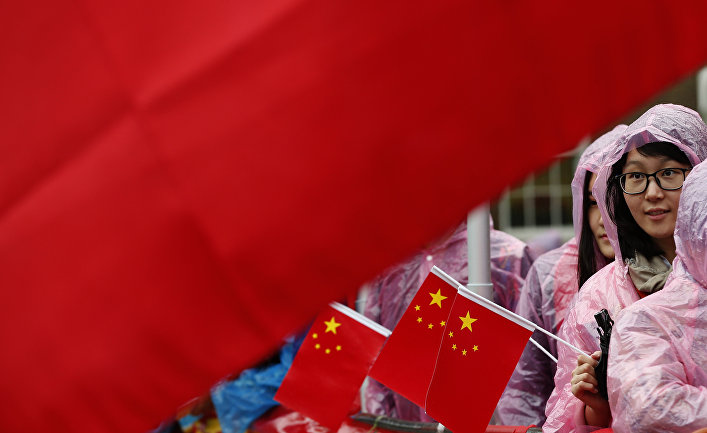Russia is continuing to make air-strikes on locations of the Syrian opposition — forces supported by the US. The Kremlin is wiping out America's Middle East policy. The situation is getting extensive TV coverage in the USA, while Putin's determination, and the Russian tactics are prompting astonishment and fascination among Americans. Meanwhile, if we turn our attention to Asia, China is building artificial islands in the South China Sea — by way of ramping up its military might. This goes along with the real threat of a cyber war with China. Against this backdrop, US President Obama's foreign policy is taking extensive flak both in the US, and amongst America's friends and allies overseas. When compared with a resolute President Putin, Obama looks a feeble leader. Although this may be baseless finger-pointing, the criticism needs to be more sanguine and strategic.
LISTEN: 'US cannot deal with China overgrowing them politically and economically' https://t.co/iro9moYE5S #SouthChinaSea
— Sputnik (@SputnikInt) October 20, 2015
In this article I want to advance three points. The first is that the USA is unable to solve all of the world's problems, and it's a peculiar idea to suggest that any nation could. The second is that even though Russian military action in Syria has humiliated the USA, it is wrong to call Putin's actions a due decision in his country's interests. They are calculated to counterbalance the humiliation Russia suffered from the US and western nations during and after the Cold War, and intended to portray Russia's superpower image to the world. The Kremlin is ready to tolerate slip-ups in the provision of aircraft and attack helicopters, as well as reprisal attacks from the anti-government rebels. The US is watching to see what Russia will do now. My third point is that any state's domestic and foreign policies should be based on strategic goals, calculated to achieve the nation's priorities and interests. This has been Obama's approach, and one that can be called prudent. The Asia-Pacific shift in US policy is based on America's vital interests. From the US viewpoint, the priorities of the Syria and Ukraine situations are less pressing than the need to take action over China.
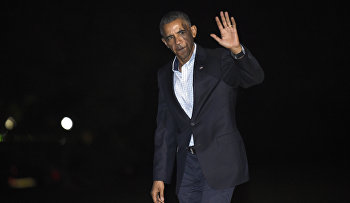
America is not all-powerful
We should never ignore the fact that the USA doesn't wield all-conquering might of the kind that could solve all the ills of the world. It would be very hard to make headway on many pressing crises if we relied solely on US power. Such situations call for international collaboration. Even so, the message coming from President Obama's critics seems to be that “the USA must fix all the problems itself! Let's take action against China, the Islamic nations of the Middle East, Ukraine, and Russia's assaults in Syria! We don't mean talk – we need action!” This kind of blowhardery exceeds the USA's abilities. Its adherents forget that American foreign policy is supposed to serve American interests. It's impossible to take remarks of this kind seriously.
Obama's foreign policy factors-in the blunders the White House has made in its war on terror, such as the Iraq War of 2003, launched by President George W Bush. The Iraq War proved that while the US may have the military might to smash a foreign government, Middle Eastern countries can't be led by military assaults to the peace and democracy so beloved of President Bush. Nor is the USA capable of rebuilding the countries which it has devastated. The Iraq War opened Pandora's box – from which the ISIL soon emerged – along with the Arab Chaos (wrongly titled Arab Spring, but more similar to Arab Hell) and the streams of refugees fleeing Iraq and Syria.
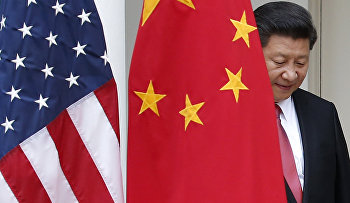
Details of President Obama's domestic and foreign policies
With snafu-avoidance hindsight, Obama's tentative policies gingerly skirt around the use of military intervention. The furthest he might go would be air or sea power, with resolute aversion to boots on the ground. From the outset the current US leader has placed his priorities on domestic affairs rather than international diplomacy. Even there, what little diplomacy was practiced was directed at canning the Iraq and Afghan wars he inherited from the Bush administration – and the avoidance of any new conflicts. Furthermore Obama holds stated policies on restoring the US economy – and spearheading international collaboration to stabilize the world economy.
It seems to me that Obama is pursuing appropriate domestic and foreign policies. The majority of Americans support the idea of pulling US troops out of Iraq and Afghanistan. However, his critics harangue him for insufficient courage, confidence or enthusiasm. Obama is also pilloried for expressing foreign policy in negative terms — “we will not deploy ground forces,”or“we will not commit more resources than the US can afford,”or“the US will not proceed unilaterally without allies” — and for showing his cards before the moment required it. This all gives Russia, China, ISIL and other American foes knowledge aforethought of the USA's intentions – causing major headaches for a whole raft of American government departments.
When compiling an overview of American domestic and foreign policy, inevitable conclusions emerge that a list of eight rules govern the President and Congress's decisions on when to go to war. The rules were actually laid out by former Secretary of State Colin Powell. If even one of the conditions cannot be met, then war should not commence.
1. Are there real and present threats to the security of our country?
2. Are there clear and achievable goals?
3. Have the risks and the costs been intensely scrutinized?
4. Have all other means been exhausted?
5. Is there an Exit Strategy which will forestall endless warfare?
6. Have the results of US intervention been estimated?
7. Will the American People support this action?
8. Will the world support our actions?
Of course, the Iraq War which Bush launched, and Powell promoted, failed to meet all eight criteria. I feel that Obama's reticence to deploy military force is based on these principles. He does not see the Middle East as sufficiently crucial to American interests. And critically, the US has no Exit Strategy in place to withdraw any armed forces it might deploy. But more than anything else – the American People are resolutely against this.
It would be wrong to lay the blame for all of the world's current ills entirely at Obama's doorstep. The crises we see in certain countries have been set-off by their own populations. Iraqis must take the blame for Iraq's woes – and Syrians for Syria's. In the final analysis, accountability for the hostilities with ISIL must rest with Iraqis and the Syrians – and not with the Americans.
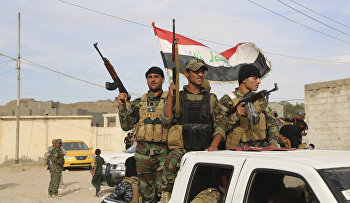
American Middle-East policy is an offshore balance
Professor John Mearsheimer, of Chicago University has said that the US managed Middle-Eastern policy prior to its Iraq War by maintaining an offshore balance, a well-proven policy. In accordance with this policy, Middle-Eastern political order was controlled by Iran, Iraq, Israel and Saudi Arabia. The US itself carried out no military activity of its own there. Instead, the White House operated there by diplomatic means at arm's length – an offshore policy. American armed intervention might only occur if this offshore balance was sundered in a way that threatened US interests. The US aided weaker nations in order to maintain balanced equilibrium. One such incident was the way in which the USA thwarted Iraq's 1990 invasion of Kuwait, after which American forces left the region as swiftly as they had arrived. This kind of Middle-East policy harvested results in both effectiveness and cost-savings. Since the regional balance was maintained by Middle-Eastern countries there on the spot, the pressure was taken off the US. Along with that, the USA avoided the hate of Middle-Eastern countries, since they had no troops in the region. And no terrorism threat either. It was a very effective policy indeed.
The overthrow of Saddam Hussein, masterminded by George Bush, and the USA's resulting failure in trying to rebuild Iraq destroyed this delicate balance of power. By taking the Middle-East powerhouse of Iraq out of the picture, its role as a counterweight disappeared, and the Middle-East power balance yawed. ISIL and other terror organizations have quickly filled the void. In its actions, President Obama's Middle-East policies have kept close to the principles of the offshore balance. He may avoid using the term — but he certainly uses the strategy.
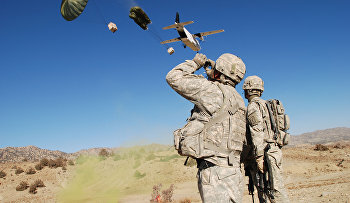
President Putin – glory today could mean disaster tomorrow
It's quite probable that Putin's annexation of Crimea, the situation in Eastern Ukraine, and the use of bombs and cruise missiles in Syria have dumbfounded the US – although Putin is no stranger to conflict. Many call Putin a first-rate strategist. Yes, he is certainly a tough leader with a penchant for risk-taking. However, the Ukraine conflict is still not over. Alongside that and an economic crisis, tumbling oil-prices and western economic sanctions, Putin launched fresh military attacks in the Middle East. The economic crisis will leave Russia pushed for success on two fronts. Undoubtedly dispatching troops to Syria and the airstrikes policy have left Obama in a bad position. Putin is thumbing his nose at Obama. The outcome of his Syrian escapade, however seems to yield failure.The order to send troops to Syria, and their use will prompt not only hatred, but desire for revenge from Western countries. It's as though Putin's sent out a decree saying Russia's a superpower which cannot be ignored. It could be seen as an outpouring of Russian nationalism and pride. Putin's foreign policy runs along similar lines.
If you wish to start a war, you must understand your country's interests, lay down clear objectives, and have an exit strategy. No-one could say that throwing a lifeline to President Assad is of crucial interest to Russia. Nor is it likely that Putin has prepared an exit strategy. It's far from likely that Russia will succeed in a crushing defeat of the Syrian opposition with air-strikes alone. If ground troops are deployed, they will certainly suffer the same failure as the US military. This is why the USA is promoting a cynical tale — “Russia wants to take on the Middle East? Sure, go ahead. Enjoy the failure.”
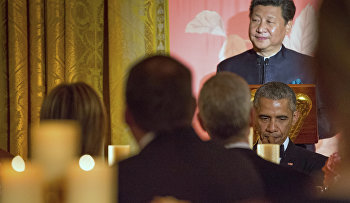
America's foreign policy priority needs to be China
Both Russia and China are threats to the American order. Because they are trying to build their own rival orders. The PRC's leader Xi Jinping talks about the “Chinese Dream,” and “the great Renaissance of the Chinese nation” — ideas crammed with nationalism and hatred towards Japan and western nations. If Russia starts fighting on two fronts, despite an economic crisis, its operations are likely to be very temporary. But we must be more wary of China. China's slow-burn strategy is a real threat. If the Chinese continue to develop economically, it will become very hard to halt them. This means that the USA should be putting China in its cross-hairs. And not Russia.
On 8th October Michael Auslin published an article in the Wall Street Journal, which was a take-down of President Obama's foreign policy. “It's impossible to ignore the results of Obama's weak diplomacy or his lack of courage.” Auslin says that Obama should be taking immediate and forceful counter-measures against both Putin in the Middle East, and against China in Asia. He insists that the approach to both Russia and China needs to be identical, and with no schedule of priorities. I have a different opinion. I demand that all of America's energies should be directed against China – bearing in mind that China's power is growing every day, while Russia is already under economic sanctions.
Washington's gamble: US causes 'chaos in #Asia' by trying to counter China http://t.co/WCbEXN33nb #SouthChinaSea pic.twitter.com/htJpxzJCko
— Sputnik (@SputnikInt) October 18, 2015
Auslin nails it in his following passage:
“Currently Obama is facing a tough choice. He can silently look on while the world order is pulled down in vital regions of the world – or he can take action in the name of maintaining stability. Both of these rival choices are full of risk. However, if he fails to take action, the certainty of aggressive escalation is perilously high. If China militarizes its artificial islands in the South China Sea in order to block navigation for the American fleet in its new territorial waters, it will hand the Chinese government the opportunity to set the agenda. The Chinese government could unilaterally declare an air-defense identification zone over the Spratly Islands. If the USA is reduced to being an observer on the sidelines, then despite the calls which will come in from allied nations, the situation is likely to spiral out of control at high speed.”
It is essential to respond decisively to China's actions in the South China Sea, and similarly to the situation around the Senkaku Islands. There should also be a similarly decisive response to the illegal cyber war China is already waging.
